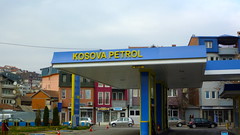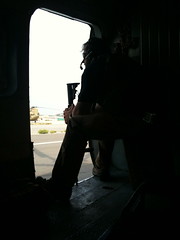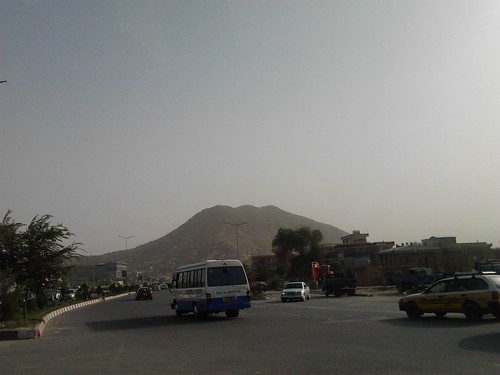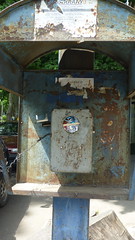“Family farmers are the backbone of our nation’s economy,” – the words of the legendary Willie Nelson speaking on behalf of farm-aid not too long ago. I thought about the words of Willie today as I walked through the mud, under the fences, past the sheep, next to the cows, over the stream and yes.. through the woods. Up here in Normandie, I’m not sure there has ever been a farm-aid organization, though we do know that farmers in France get their share of – often referred to as unfair- subsidies and market protection. Maybe it is unfair, but when you’re walking passed the old fashioned farm houses and over the majestic green hills, you can’t help but breath deep and feel… healthy.
Back in New Jersey, in the town where I spent much of my childhood, older people always told me about how my sprawling suburban hamlet used to be a farming town. Yet by the 1990’s there was not a single farm left, and it looked more like a town made up of strip malls, big box stores, and cozy suburban homes. Whatever majestic green there may have once been was long paved over by several highways criss-crossing the town. No one thought about what had been lost – too late now anyway.
Country life isn’t for everyone. It may not even be for me. But when you’re eating cheese or bread, and you can look across the street and wave to the sheep or baker who were responsible for the deliciousness on your plate – there is a satisfaction that anyone could and should get to enjoy (city or country dweller). And my utmost compliments to the people of Northwest France who have managed to preserve their farms and their wonderful environment. Wandering around these sleepy forgotten places, it doesn’t just feel like the backbone of France, it feels like the backbone of a sustainable world.


 The border crossing looks new and partly unfinished. In different corners there are exposed wires and lamp fixtures that will probably soon find their permanent place. It is the middle of the afternoon on a quite holiday afternoon, the border guard in his nice new blue jacket and pants saunters onto the bus looking at each person’s passport. As he approaches a few other western passengers seated in from of me, I notice the nice blue patch on his arm featuring the yellow outline of the country, “Its your first time in Kosovo?” he asks each of us, “Just visiting?”
The border crossing looks new and partly unfinished. In different corners there are exposed wires and lamp fixtures that will probably soon find their permanent place. It is the middle of the afternoon on a quite holiday afternoon, the border guard in his nice new blue jacket and pants saunters onto the bus looking at each person’s passport. As he approaches a few other western passengers seated in from of me, I notice the nice blue patch on his arm featuring the yellow outline of the country, “Its your first time in Kosovo?” he asks each of us, “Just visiting?” From the moment we step into the belly of the chopper I’m mesmerized by all the Russian writing and the obvious fact that since this thing was manufactured, back around 1961, very little seems to have changed. “If I give a signal it means we’re going to land hard so just put your arms up and lean forward like this,” our easy going flight chief shows us, as his machine gun dangles at his side. Minutes later we’re floating above the city and racing, as much as such relics can race, along the path to Jalalabad.
From the moment we step into the belly of the chopper I’m mesmerized by all the Russian writing and the obvious fact that since this thing was manufactured, back around 1961, very little seems to have changed. “If I give a signal it means we’re going to land hard so just put your arms up and lean forward like this,” our easy going flight chief shows us, as his machine gun dangles at his side. Minutes later we’re floating above the city and racing, as much as such relics can race, along the path to Jalalabad.
 The tall blonde blue-suited airport security worker keeps looking down at his screen and up at my face in suspicion, “So you work for who?” I try to explain my different jobs as a citizen journalist, but he only seems to listen to half of what I say. From the very first question he has shot me looks of disapproval, of my job, of my nationalities, of my travel habits… to him there is something wrong with me. He goes on to ask what I find to be excessively personal questions about who my friends are and who I live with, which I politely refuse to answer. He calls over another man who is near the gate, watching all the pre-boarding interviews for passengers on their way to the US. This man, obviously a supervisor, looks at me, looks at his paper, and starts writing me up for a “full” security check. As the two men start to take me away from the gate the supervisor says “Sir, you’ll have to go for further security checks, your life is just too complicated for us.”
The tall blonde blue-suited airport security worker keeps looking down at his screen and up at my face in suspicion, “So you work for who?” I try to explain my different jobs as a citizen journalist, but he only seems to listen to half of what I say. From the very first question he has shot me looks of disapproval, of my job, of my nationalities, of my travel habits… to him there is something wrong with me. He goes on to ask what I find to be excessively personal questions about who my friends are and who I live with, which I politely refuse to answer. He calls over another man who is near the gate, watching all the pre-boarding interviews for passengers on their way to the US. This man, obviously a supervisor, looks at me, looks at his paper, and starts writing me up for a “full” security check. As the two men start to take me away from the gate the supervisor says “Sir, you’ll have to go for further security checks, your life is just too complicated for us.”